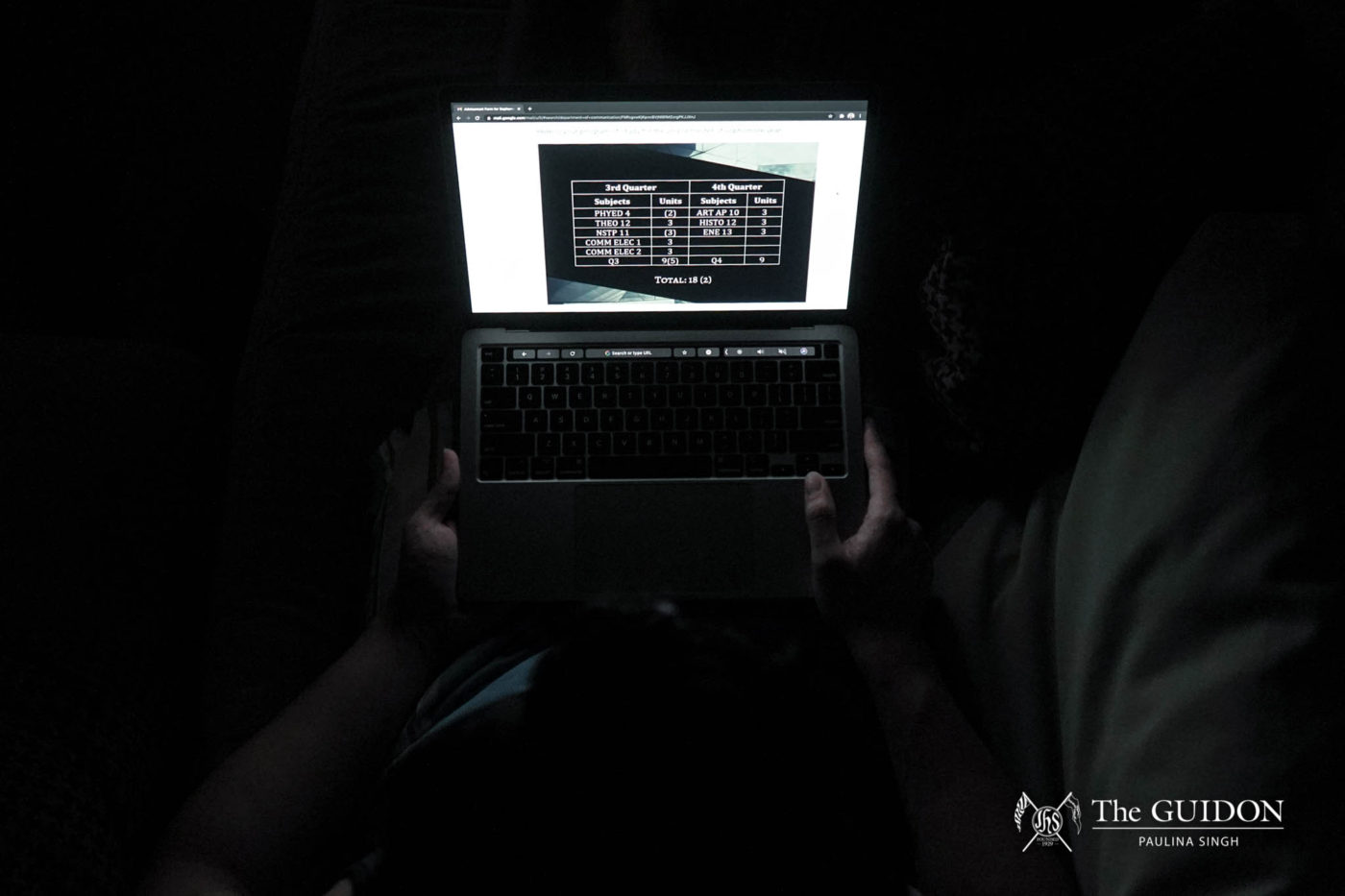THE LOYOLA Schools’ online classes for the second semester still follow a quarterly system despite an increase in mental health concerns in the previous semester. According to Associate Dean for Academic Affairs Josefina Hofileña, PhD, the administration found it difficult to evaluate the set-up’s efficacy due to time constraints and mixed feedback.
Loyola Schools Office of Guidance and Counseling (LSOGC) Director Gary Aguedo Faustino added that he noticed an increase in mental health concerns on social media despite fewer student requests for online counseling.
“You have a lot of students who get overwhelmed and stop doing things and before they realize it, [so] the work piles up. […] We’re all trying to adjust to the new system and that really creates havoc in your emotional state, and then of course cognitively you are affected,” Faustino said.
Overwhelming pace
Faustino explained that students are overwhelmed not only because of the online set-up, but also because of the COVID-19 pandemic and the recent typhoons. He said that although only some people suffer from severe mental illnesses, the online transition is enough cause for trauma and anxiety.
The quarterly system was designed in line with the Adaptive Design for Learning (ADL) framework to ensure a balanced load, according to Associate Dean for the Core Curriculum Benjamin T. Tolosa, PhD. However, he said that longer classes overlap and cause an unbalanced load as they are carried over to the next quarter. Hofileña added that students found the quarters short and rushed.
“There have been programs, especially in School of Science and Engineering, that [students] really cannot do in a quarter. Parang the nature of their program is such that you need a longer period of time so that students can absorb [lessons],” Tolosa said.
Tolosa also claimed that some professors were inconsiderate towards students after the one-week cancellation of classes, which compressed their schedule for deadlines. He explained that the quarterly set-up limits contingency schedules as there is less leeway for extensions in unforeseen circumstances.
Practical adjustments
Due to the short time frame between the semesters, Tolosa said it would be “premature” to return to a semestral set-up. Hofileña said that they can only decide next year’s operations after at least a year of evaluations on the current set-up.
“On [the] one hand, gusto mong pagbigyan yung mga estudyante (you want to go easy on the students) kasi everyone’s in that situation. Pero at the same time you want to maintain the standards of the school,” Faustino added.
To alleviate students’ mental health concerns, the administration lengthened the second semester calendar. Hofileña said that aside from beginning the semester at a later date, each quarter will now span eight weeks instead of seven.
As for problems with professors, Hofileña and Tolosa urged the students to raise their concerns through formal channels such as the course and faculty evaluations and the concerned departments.
They stressed the importance of these channels because detailed feedback could be concretely understood on a case-to-case basis. “We need the specifics about the concerns of students, which sometimes don’t come out on social media because on social media, you can be very general,” Hofileña said.
Hofileña also assured that there are support systems in place to aid students’ well-being, such as LSOGC’s services. However, Faustino stated that some students cannot join counseling sessions from home due to internet connectivity issues and lack of home privacy.
Making do
For now, Faustino said that LSOGC has online synchronous counseling sessions, asynchronous webinars, and podcasts available to all students. He said that they are “making do” with the quarantine’s limitations, but they are also studying new forms of mental health assistance.
For instance, Faustino said that music and composition writing could be used for therapy in the future. “You can say that it’s a snail pace way of doing things but […] you cannot talk about big things and big movements and big changes,” he said.
He also hopes that the LSOGC can provide on-campus counseling as soon as quarantine restrictions ease up. However, Hofileña said that on-site activities cannot resume yet due to the Commission on Higher Education’s health guidelines.
In the meantime, Tolosa commended the LS community’s patience and openness amid the online transition. “In general, I think people have really engaged [in] the situation and have really given a lot of time for adjusting to this new context, […] the fact that people are open to this paradigm shift in learning and teaching is […] really positive,” he said.Hofileña also assured that the administration listens to students’ feedback as long as coursed through the proper channels. “That kind of feedback has been sent to the departments, so departments can now calibrate and adjust their design and plans for the second sem. So, naririnig naman kayo,” she said.







